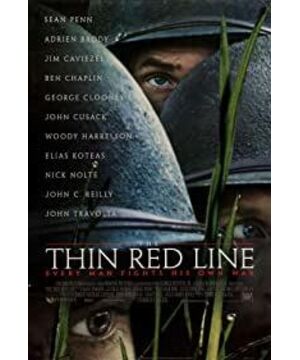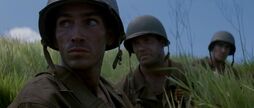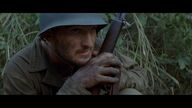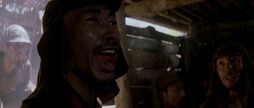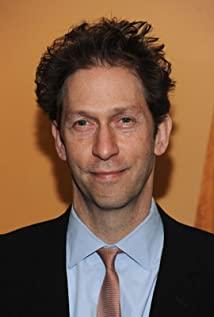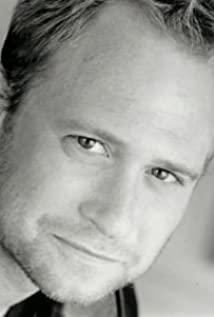The Thin Red Line evaluation action
-
Dwight 2022-03-22 09:01:24
I never thought that a war movie could be so lyrical and poetic. Just one scene of capturing the top of a mountain is enough to be recorded in film history-the turbulent scene, the moving shots seem to be in dialogue with the soul, the deep fear is revealed, and the soldiers’ subjective Feelings can be transformed into the subjective feelings of you and us moviegoers. There is no stagnation or ramble, but it is also a very moving ramble.
-
Allan 2021-10-26 03:30:48
In the film, there are some animals in the jungle, owls, lizards, parrots, bats, crocodiles, and some unknown animals. What do you want to show? Is it to show that sometimes people are worse than animals?
The Thin Red Line quotes
-
Colonel Gordon Tall: How many men is it worth? How many lives? One? Two? Twenty? Lives will be lost in your company, Captain. If you don't have the stomach for it, now is the time to let me know.
-
Colonel Gordon Tall: John, I'm convinced that the Japanese position can be broken right now. All we have to do is keep going and we'll have this hill. We'll have this hill by sundown! You see the spirit in these men? Do you see the new spirit? Well, I want to take advantage of that before something happens to sap their strength. To have this battalion relieved in a defeat, or even to have it reinforced by troops from a reserve regiment, if we were stalled before reaching the top, well, Jesus Christ, that's just a hell of a lot more than I could stand! I've waited all my life for this. I've worked, slaved, eaten untold buckets of shit to have this opportunity and I don't intend to give it up now.
-
Alternative "philosophical war films"
-
The "thin red thread" that held the neck
-
Left View: Battle of Guadalcanal - "The Thin Red Line"
-
There is no problem with literary war films, but the campaign is wrong!
-
"The Thin Red Line": The iron company, the flowing company commander [The 57th Berlin Film Festival Golden Bear Award]


